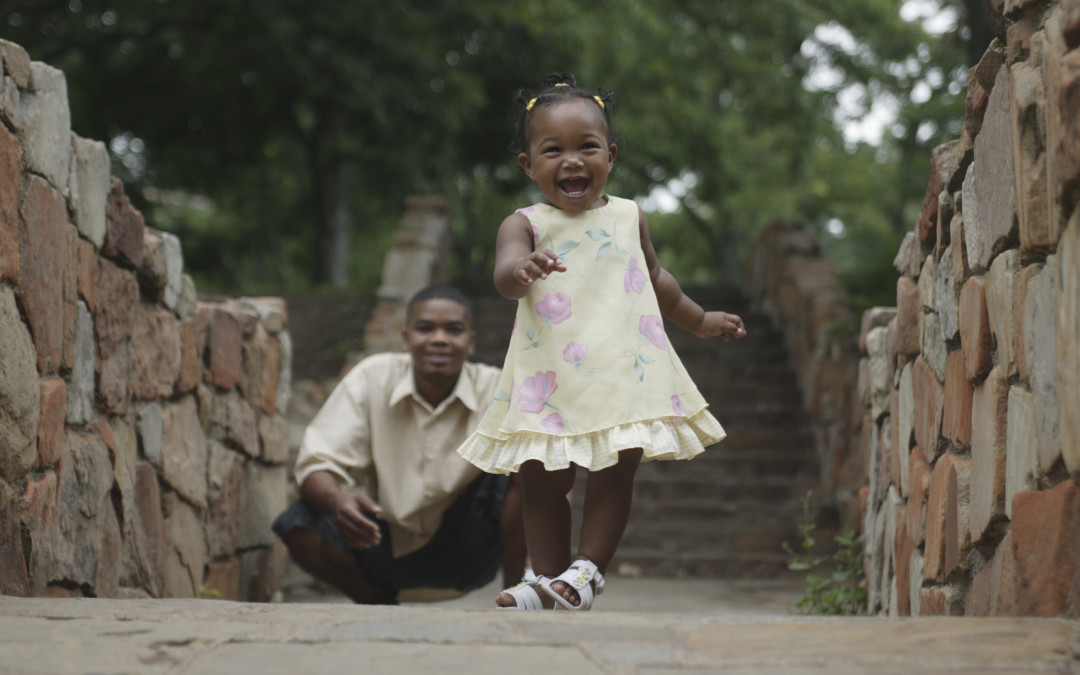
The Parts I Struggle to Love
I often mention the importance of self love and unconditional acceptance of all our parts. But I will be the first admit that not all parts are easy to love and accept. Sometimes I ignore a part because it makes my stomach crawl to consider I might embody those feelings. I have to work hard to bring them in to my awareness and embrace them with the same love I give the parts of me I can accept. I have so much trouble in accepting some parts it is hard to write it down here. But I know there is a chance that others struggle with accepting the same parts. So I will do it … for my survivor friends.
1) My inner cynic. I know how important it is to embrace what is and stop using all my energy to resist life. But I have one heck of a cynical part. There are days when I can feel the negative energy rising up in me. Sometimes I just want to watch a Matt Bellasai video and cheer him on. Sometimes I need to resist it all. Sometimes I need to complain about every little aspect of my life that isn’t perfect. And if I explain that away, I am resisting my resistance.
2) My inner serial killer. I wish this was a metaphor for something else, but it isn’t. You see, there are two types of rage. There is regular rage. I don’t have a problem with that. I can scream in my car. I can throw pillows. It helps me know when a new memory is coming. As long as my rage doesn’t come out sideways at others, I can be friends with it. But the white rage is a different story. It is some nasty stuff. It is the part of me that fantasizes about the deaths of my abusers, sometimes in detail. And while I know I will never act on it, it scares me to feel those feelings. I have learned that as humans, we embody everything to some extent. And I know we all have the part that is capable of murder. And accepting that is the ultimate form of self love. read more…

Bridging the Gap in Conscious Parenting
The Movement
I love the conscious parenting movement. Amazing teachers like Janet Lansbury and L.R. Knost changed my perspective with their focus on respecting the child. I have to admit, the concepts came easy to me. I knew deep down inside they were right even though I did not experience that type of parenting as a child. I innately knew this was my parenting method as my conscious thoughts lined up with everything I was reading. I knew I was going to be that kind of parent, a respectful parent.
I had already been in recovery for a few years from my childhood of abuse and trafficking so I knew I would be different from my family. I had removed the abusers from our lives for my children’s safety. I had already embraced yoga, meditation and some daily awareness practices. I was sure I was equipped to handle it.
So I was surprised that, in practice, I wasn’t handling it. My kids were triggering me with their behavior. But their behavior wasn’t bad. It was normal for children. They were just being kids. They were pushing boundaries. They were expressing their individuality. And I was coming unglued. I was exploding at them for the smallest reasons. And I was so sad, guilty and anxious about it which made everything worse. I wanted to be the parent I was reading about. And I wasn’t. read more…

Stop Trying Too Hard
I recently experienced the feeling of emptiness again. It is uncomfortable. It feels like I need to eat an entire Thanksgiving dinner by myself but I know that would not help. It mostly feels uncomfortable because it is unusual. With the emptiness, I don’t feel any feelings. And I don’t feel any of my normal defenses. It doesn’t feel numb. It just feels empty.
Even though it’s weird, I do have a sense of hope when I feel it. I know there has been a “letting go” deep down inside. Some unhelpful belief or painful emotion has packed up and left. And I know exciting and positive things take its place. So that fuels my hope. And I have to admit, my hope is pinned on one particular thing.
Over the past six months (or maybe longer at this point), I have been inundated with feelings of futility. And I must admit I hate them. I do my best to be accepting and supportive of my inner parts. I do my best to allow the processing to run its course. I do try hard to stay patient. And most importantly, I try not to let those feelings get tied in to my daily thoughts about my current life. The thought trap will easily ruin an otherwise good day. read more…

Letting Them Love What They Love
What I Loved
When I was growing up, I used to dream about what my life could be. I used to think about what I would have done if I could have done anything I wanted. Don’t get me wrong, I know that no child gets to do whatever they want. And most kids probably dream of a life of pure freedom. My son loves to talk about eating candy and playing video games all day.
But I wanted more realistic things, or in my case, not realistic at all. I wanted to be unconditionally loved by my family. Honestly, I would have taken conditional love too. I wanted real friends. My self esteem was so low that I was attracting far too many bullies in to my life. I wanted to play more, especially with other kids. I wanted to talk with others more, to be more social. But activities required me to get too close to other adults which wasn’t acceptable to my parents.
And I wanted to swim. I loved to swim more than anything. My body had been through so much, and when I was in the water, I felt weightless. The pain went away. And I could move through the water with little effort. I was a good swimmer. And of course, I loved the fact that I was good at something outside of school. At home, I was never good. read more…

Not Enough
The Beliefs
Uncovering my unconscious beliefs has been a huge part of my recovery journey. My awareness has shifted my beliefs some, but it feels like they are holding on for dear life. I know I am still processing what created them. And I know it would be best to accept that. But my beliefs keep getting in the way.
Lately, my “not enough” beliefs have become more apparent and much louder as life becomes less predictable. That is probably why I can hear it like a loudspeaker right now. Not enough new clients. Not enough Facebook likes. Not enough workshops sold. Not enough emails received. Not enough income. Not enough sleep. Not enough time. Not enough of anything … ever. And we all know what happens when there is not enough. Disappointment happens. And gratitude is nowhere to be found.
I have been giving some thought to this phenomenon lately. Honestly, thinking is what I do, so I am sure there is no surprise there. But I have been wondering where it comes from. How can I want more when I believe I am not deserving of it? It seems so dichotomous. That being said, most belief systems based on trauma are not logical. And the more I consider it, the more it makes sense. Maybe I believe there is not enough because I believe I am not enough. read more…

Triggers Get a Bad Rap
As survivors, we work hard to minimize the impact of triggers on our daily lives. We learn approaches to stay present when the triggers come. And we try to avoid the triggers when we can. I have met survivors who attempt to avoid all triggers. Some stay locked away from the world. Some avoid relationships, friendships and anything remotely resembling their childhood. And while there is certainly a case for minimizing triggers to keep life tolerable, there is a problem with trigger avoidance. It is impossible. Triggers are inevitable. As long as we live on this Earth, we will be triggered.
Why? Triggers aren’t what we think they are. Triggers are not small torture devices sent from the universe. Triggers are a reminder that we have work to do. We have emotions to feel. We have memories to recover. We have inner conversations to start. We are here to grow. It is a universal law. So we will continue to see reminders. And avoidance will not help us. We may temporarily delay the inevitable, but that’s the most we can do.
It isn’t our fault that we don’t understand the true nature of triggers. We have been told they are bad. We have been told to avoid them as much as possible. Most trauma therapies teach us how to tolerate and live with trauma, to breathe through our triggers. So we have learned that triggers are something to be lived with, not something to be learned from. And it doesn’t help that there is a pervasive feeling in the world of trauma recovery that trauma will follow us around for the rest of our lives. While I do believe self-development is a lifetime journey, I am not convinced we have to live with trauma for a lifetime. read more…

Changing My Mind
The Hardest Part of the Journey
For a long time, I thought the hardest part about trauma recovery was allowing the expression of past emotions. I fought and defended against them for most of my adult life in an attempt to avoid the inevitable. But once I allowed the emotions in, little by little, I saw the improvement in my physical health and well-being. I saw the occasional glimpses of peace and knew I was doing the right thing. It was painful to feel the emotions, but I have finally come to realize, it won’t kill me. (And no, that is not just a phrase. I really thought it would kill me.)
But another part of recovery seems to be taking its place at the top of the hierarchy of apparent impossibility. And it doesn’t seem to be getting any easier or simpler. It is just as hard as the first time. Maybe it is my stubborn nature. Maybe it is my comfort with staying in my head. But changing my mind has been quite a struggle.
My belief systems have always been pretty solid. Honestly, when I was growing up, there was a ton of evidence supporting them. Nobody is trustworthy. The universe will not support me. I am not worthy of love or anything else for that matter. All these beliefs were supported in my daily life. So when I became an adult, there was no reason to question them. I was keenly aware of the continuing evidence to support my beliefs. And anything that countered my beliefs was explained away. read more…

I Won’t Make The Same Mistakes As My Parents
“I will not make the same mistakes my parents made.” It may be one of the most common sentiments in the world of parenting. But when we express this desire, it is often met with rolled eyes or some other doubtful response. Why is that? Deep down inside, I think we all sense it is much more complicated than we are willing to acknowledge. Changing our parenting approach from the way we were raised is extremely difficult. The only easy solution is to swing the parenting pendulum to the opposite extreme, which does very little to improve the situation. It is as though we are hard-wired to behave in the same manner. In reality, that may be the truth. Our brain has been wired to perceive reality in a certain way.
With that said, the sentiment should not be met with so much skepticism. It is changes in parenting that are largely responsible for any human evolution that has occurred thus far. If we were parenting the same as the first humans, things would be very different. But to make changes in generational parenting requires conscious choices and a honed awareness of the patterns we want to stop. That is not easy. There has to be significant motivation to make that happen.
In the case of parents who grew up with complex trauma, we have all the motivation we could possibly need. The complex trauma survivors I know have vowed they will never abuse their children again. And this is great to hear. There are a large number of parents who have agreed to stop the cycle of abuse. And I know they will.
But there’s a problem. While the sexual and physical abuse will stop with them, there are other patterns or habits that are harder to notice and change. These habits come from the belief systems within abusive families that are passed down to children. And they are exceptionally hard habits to break. But the first step is awareness. And I have made it my mission to bring these habits in to the light. There are seven habits that seem to be particularly prominent within the survivor parent community. read more…

Which Comes First? Thoughts or Feelings?
This week, I had an image shared more than 15,000 times on Facebook. It brought 2,600 new members to the Beating Trauma community and I am extremely grateful. While the picture was beautiful, I think the quote stirred many people. It wasn’t my quote. The quote came from Iain Thomas, who is a popular author and blogger. ““Never apologize for how you feel. No one can control how they feel. The sun doesn’t apologize for being the sun. The rain doesn’t say sorry for falling. Feelings just are.”
This quote resonates with me because I am tired of apologizing. I am who I am. I feel what I feel. And honestly, I think many can relate. But there were others who were not quite sure about its veracity. On larger pages, I noticed some comments that illustrated the common misperceptions about feelings. Several people suggested that feelings were to be controlled. One extreme comment referred to unapologetic feelings as leading to terrorism. In this case, there was a clear misunderstanding between controlling feelings and controlling actions.
There were others who ventured in to the debate over whether or not thoughts can control feelings. There is much debate about this concept. I have been pondering this for years as I have worked through my own trauma recovery. And I have learned so much. So today, I am going to be bold and tell you the answer. read more…

Failure is Optimal
As I continue to pursue my dreams, I am often faced with my unconscious beliefs about why it is a horrible idea. Lately, I have spent most of my time, energy and awareness on how those beliefs are holding me back from my plans to live a very different life than my childhood. And I don’t know why I am still surprised to see yet another belief to explore. Don’t get me wrong, I am not suggesting these beliefs alone are stopping progress. But my beliefs fuel my actions and my defenses, so they are having an impact.
I often get the sense that I prefer failure. I am not referring to the small failures that teach us how to overcome obstacles and meet our long-term goals. I am talking about failure on a much bigger level. I am discussing the kind of failure that keeps life in a rut. I am talking about the kind of failure that comes from quitting after 95% of the job is done. This failure comes from self sabotage.
But there are reasons for this. And when I look at my past, they make so much sense. I wonder how it would be possible to get out of a traumatic childhood without these beliefs. (Although I never say never.) They are ingrained in the experiences of trauma. In many ways, they are inseparable. So where do they come from? Let me explain how three of my most detrimental beliefs were formed. read more…

